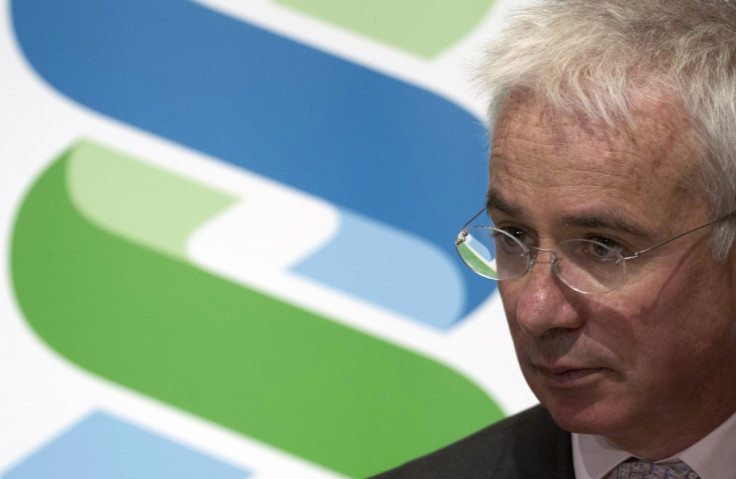Standard Chartered Boss Peter Sands Not Stepping Down Amid Fresh New York Regulatory Action

Standard Chartered's boss says he has no plans to step down after the UK bank reported a 20% decline in profits over the first half of 2014, amid a fresh investigation by the New York regulator for its failure to flag up high risk transactions.
The bank's systems failed to report transactions vulnerable to money laundering activity, meaning it will be hauled before the authorities to "discuss a settlement". This comes two years to the day since New York State regulator Benjamin Lawsky described it as a "rogue institution" for doing business in sanctioned nations Iran, Myanmar, Libya and Sudan.
Its half year results show that the bank is facing serious pressure from its dominant Asian arm, which accounts for up to 75% of its revenue.
"Negative sentiment towards emerging markets impacted the financial markets business, whilst the group faced continuing challenges in Korea. As a result, income fell 5% to $9.3bn (£5.5bn, €6.9bn) and profit before tax fell 20% to $3.268m," read the bank's results statement.
The double-whammy will increase the pressure on CEO Peter Sands amid reports that investors are becoming disgruntled at his management of the bank.
"Rightly or wrongly, there are people questioning Peter Sands. Standard Chartered are in the naughty box at the moment," Nick Brind, a fund manager in Polar Capital who held shares in Standard Chartered until last year, told Bloomberg.
Sands has since said that he has no plans to step down, in response to speculation that he will leave.
Over the course of the year, Standard Chartered's shares have plummeted by 11% - with only Barclays performing worse among Britain's big five banks.
Sands described the results as "clearly disappointing", adding: "Overall, it currently remains our expectation that full year underlying profits will be down on 2013, but with underlying profits in the second half likely to be higher than in the same period last year."
The bank's Korean operation is a clear cause for concern. It has sold its consumer finance and savings bank and reduced headcount by 9%, closing 47 branch outlets.
"We continue to de-risk the balance sheet, tightening underwriting criteria for unsecured retail lending and exiting all third party sales channels. As a result of these actions, income was down 26% or $229m with operating profit down by $264m," the bank said in a statement.
The latest regulatory fix has seen Benjamin Lawsky discussing a settlement agreement worth at least $100m, reports the New York Times. If these talks fail, Lawsky is said to be prepared to launch enforcement.
Once again, it draws attention to the bank's regulatory safeguards. In 2012, Standard Chartered settled on a combined $327m settlement with various US regulatory actors for allegedly facilitating trade in sanctioned countries. Because some of the trade was in US dollars, it was subsequently processed in US clearing houses.
© Copyright IBTimes 2024. All rights reserved.






